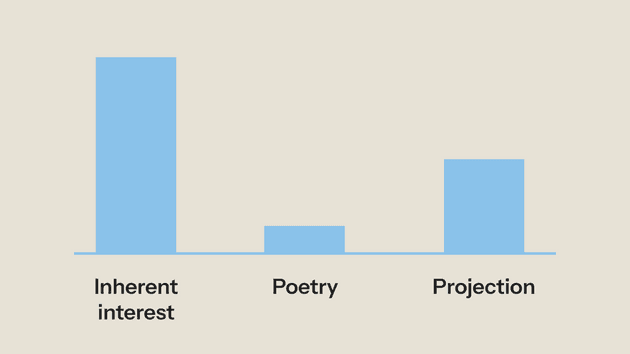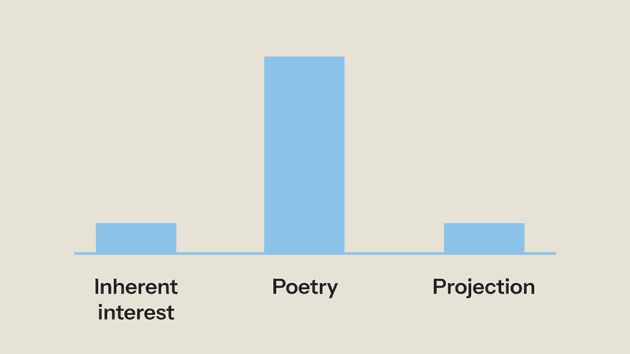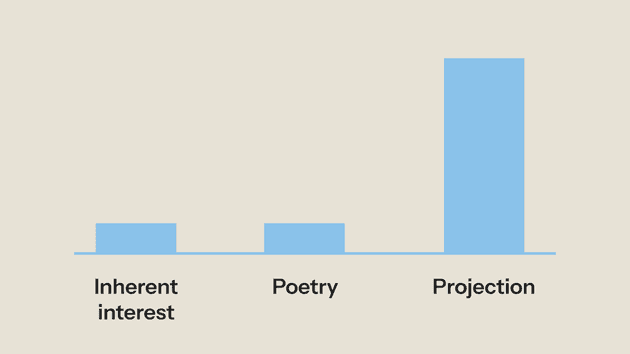Three factors that make an entertainment experience interesting: Inherent Interest (natural appeal), Poetry of Presentation (aesthetic quality), and Projection (audience immersion through empathy and imagination).
Book: The Art of Game Design
Why do we find some performance interesting while some not? Game designer Jesse Schell broke down what makes an entertainment experience enjoyable into three key factors: Inherent Interest, Poetry of Presentation, and Projection.
The first factor is Inherent Interest. Some ideas are more naturally engaging than others.
Wrestling an alligator beats eating a cheese sandwich every time. Our brains are more curious about risk over safety, unusual over ordinary, and dramatic change over stability. Some content simply has built-in appeal that matches our psychological drives. That's why a daring rescue in an action movie always commands our attention more than everyday events.
The second factor is Poetry of Presentation, the artistry and aesthetic quality of the experience.
How is the story told? Beautiful writing, clever cinematography, and masterful design can elevate any concept. Even inherently interesting material can fail due to poor presentation, while exceptional artistry can make ordinary moments truly memorable. However, keep in mind "Don't make a brilliant image of a fuzzy concept".
Finally, there's Projection, the magic that happens when an experience invites you to use your empathy and imagination to become a part of its world. We care more about events happening to us than to others.
Storytellers create this connection by developing characters we can relate to and care about. When we feel what the character feels, we are projecting ourselves into the story. This sense of immersion, where we mentally enter the world of the experience, is what makes us feel truly invested.
Let’s use this framework to examine some entertainment experiences.
Street performers juggling running chainsaws is an inherently interesting event despite its limited poetry. But there's some projection: as it is easy to imagine what it would be like to catch the wrong end of a chainsaw.
On the other hand, a violin concerto relies heavily on the poetry of presentation because two sticks rubbing together isn't usually inherently interesting, and the projection isn't common.
How about the popular video game Tetris? An endless sequence of falling blocks leaves little room for inherent interest or poetry of presentation. However, the projection can be intense because you make all the decisions. Whether you beat the game or not solely depends on your performance. This is a shortcut that traditional storytelling cannot take.


